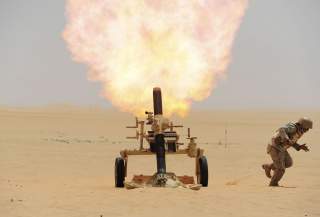Saudi Shakeups Have Created Fractures in Middle East Politics
The Saudi leadership has espoused an iron-fist policy against political alternatives at home hand-in-hand with a flag-bearer role for leading the call for change in the region.
The Way Ahead
The inherent contradictions in Saudi policies to uphold domestic and regional stability appear as one of the main challenges before the contemporary Gulf order. While the Saudis have proven successful in stemming change during the Arab Spring even if at a great cost, the MBS-led transition to own the case for reform at home may the open regional Pandora’s box. There is an unfilled demand for change and most of the structural problems in the region continue to fester in the background. Therefore, the Saudi case for reform might bring about an unintended consequence of a new wave of regional instability. That instability will not just be in advocacy of reform but also in opposition to it from status quoist circles.
This is partly because Saudi leadership’s ability to own and sustain reform appears dubious at best. The delicate balances in the new Saudi alignment towards “moderate Islam” complemented by social and economic reforms are already loaded enough to keep the Saudi Kingdom entangled in a transitional process. Yet the Saudis also appear emboldened to assume foreign-policy activism, which is again predicated on the fragile pillars of American leadership, anti-Iranian sectarianism, and alliance with pro-Western regional actors including Israel. Without consensus, particularly among Gulf sheikhdoms, on the basis of regional order, the recurrence of crises is inevitable and the Gulf countries ability to steer clear of regional conflicts is more likely to be illusory.
The cracks in Gulf unity are reason enough to rethink the current approach of Saudi leadership, while regional and Islamic countries differ on ongoing conflicts in Syria to Yemen and beyond. The UAE-Qatar rivalry to prevail in Gulf politics has turned into a major setback for Gulf stability. The Gulf crisis in itself underlines the need to find common ground among GCC nations, which could only be the first step to project power in regional conflicts. Even the possibility of U.S.-enforced “cold peace” could not bring about the much-needed common action among the Gulf nations. The looming confrontation with Iran would have disastrous consequences for Gulf security in all three possible scenarios towards the Iranian bomb, regional war or regime change in Iran. Therefore, the GCC would better strive to minimize the Iranian spillover rather than fan the fire of confrontation.
The regional order has to accommodate the growing demands for security, welfare and dignity of the regional peoples. These goals entail integrating popular demands into political regimes as well as finding common ground among regional powers to establish a security community above all to root out radical extremism from the lands of Islam. In that, exclusion of Iran and alternative political ideologies of Islamism is a non-starter. Rather, a more comprehensive regional order would need to advocate political pluralism and moderation and provide enough room to integrate political grievances into mainstream Arab politics to isolate nonsystemic actors.
Pinar Akpinar is research fellow at Istanbul Policy Center, Sabanci University.
Bulent Aras is senior fellow and professor of international relations at Istanbul Policy Center, Sabanci University and visiting professor at Rensselaer Polytechnic Institute.
Emirhan Yorulmazlar is Foreign Policy Institute fellow at SAIS, John Hopkins University.
Image: A Saudi soldier fires a mortar towards Houthi movement position, at the Saudi border

